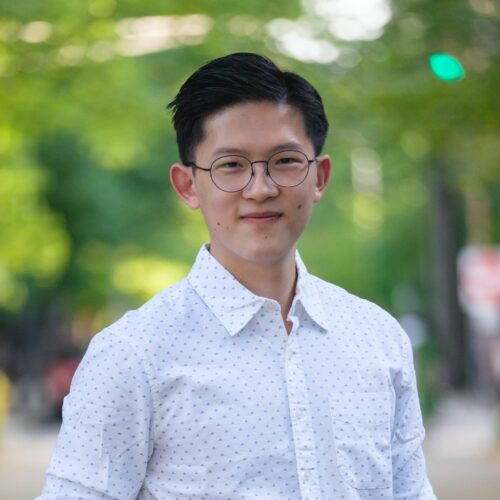For Eric Y. Wang (YC ’21), photography has always been about seeing things you would normally miss in daily life. And throughout his four-year research career at Yale, Wang always approached scientific problems the same way, looking for things other people would normally miss. The approach has led him to countless successes. Earlier this year, Wang was first author in a Nature paper on autoantibodies and is now on his way to an MD/PhD at Weill Cornell.
Coming into Yale, Wang knew he wanted to pursue both research and photography. Having done both in high school, Wang immediately joined a lab as well as the Yale Daily News (YDN) during his first year. Although his very first research project didn’t go as planned, Wang used these experiences as valuable learning moments. “It was a good experience because in science, things are bound to go wrong, even in the best projects, and having that early experience of things not working reinforced my desire to do research,” Wang said. “The fact that I still wanted to do research after going through this experience probably means I am really interested in it.”
During his sophomore year, Wang joined Aaron Ring’s (YC ’08) lab, hoping to have the opportunity to take on his own project. “For me, what I really wanted from a lab was the ability to lead my own project and take on something for myself,” Wang said. With the support and encouragement of Ring, Wang quickly translated his passion for research into meaningful work, taking charge of a project that would later become the foundation for his autoantibody publication. Wang would spend two years tirelessly developing novel technology capable of detecting autoantibodies, something seen in many autoimmune diseases as well as in patients with COVID-19.
When COVID-19 forced all the labs to close, Wang was able to make the most out of his situation, remotely analyzing his screened COVID-19 patient samples, which eventually led to his publication. “Eric had a totally fearless and gung-ho mindset where he got completely absorbed in an interesting scientific question and was willing to take any approach he could to address that question,” Ring said.
Wang’s drive was not only seen in the laboratory, but also in the photojournalism work he did for YDN. Wang quickly rose through the ranks, from contributing photographer his first semester to photo editor by the beginning of his sophomore year. For Wang, photojournalism was a completely different type of photography than what he was used to. “I came from a really quiet suburb. Our [high] school didn’t really have a newspaper, so I never really had that exposure,” Wang said. Nonetheless, Wang used photojournalism as one of his ways to stay connected to the Yale community. Wang documented a diverse array of events at Yale, from the opening of Benjamin Franklin and Pauli Murray Colleges to the protests against a shooting that involved the Yale Police Department in 2019. “It was really cool seeing your photos being spread online,” Wang said. “This was particularly true in the case of protests. Photos from protests can be very powerful and moving and can call people to action.”
Although photography and research might not immediately seem to involve overlapping skills, the ability to see the things others normally wouldn’t has helped Wang get to where he is today in both of his passions.
When asked about his future plans and why specifically he chose to pursue a MD/PhD, Wang mentioned the unique perspective he will gain on human diseases as a physician scientist. “When you talk about things in science, you don’t really talk about the patients as much. It’s very easy to get disconnected from what actually matters—which for me is being able to help patients,” he said. Research-wise, Wang hopes to continue growing as a scientist, formulating important scientific questions and ideas so that one day, he can start his own lab. Wang also hopes to continue his love for photography and to take advantage of all the unique features that New York has to offer through street photography.
His biggest advice for aspiring scientists? “Not to stress about things like publications… it’s much more important to focus on developing yourself as a scientist,” he said. Living by that advice, Wang has been able to broaden his scientific knowledge and gain a unique way of thinking that has helped him find success.

